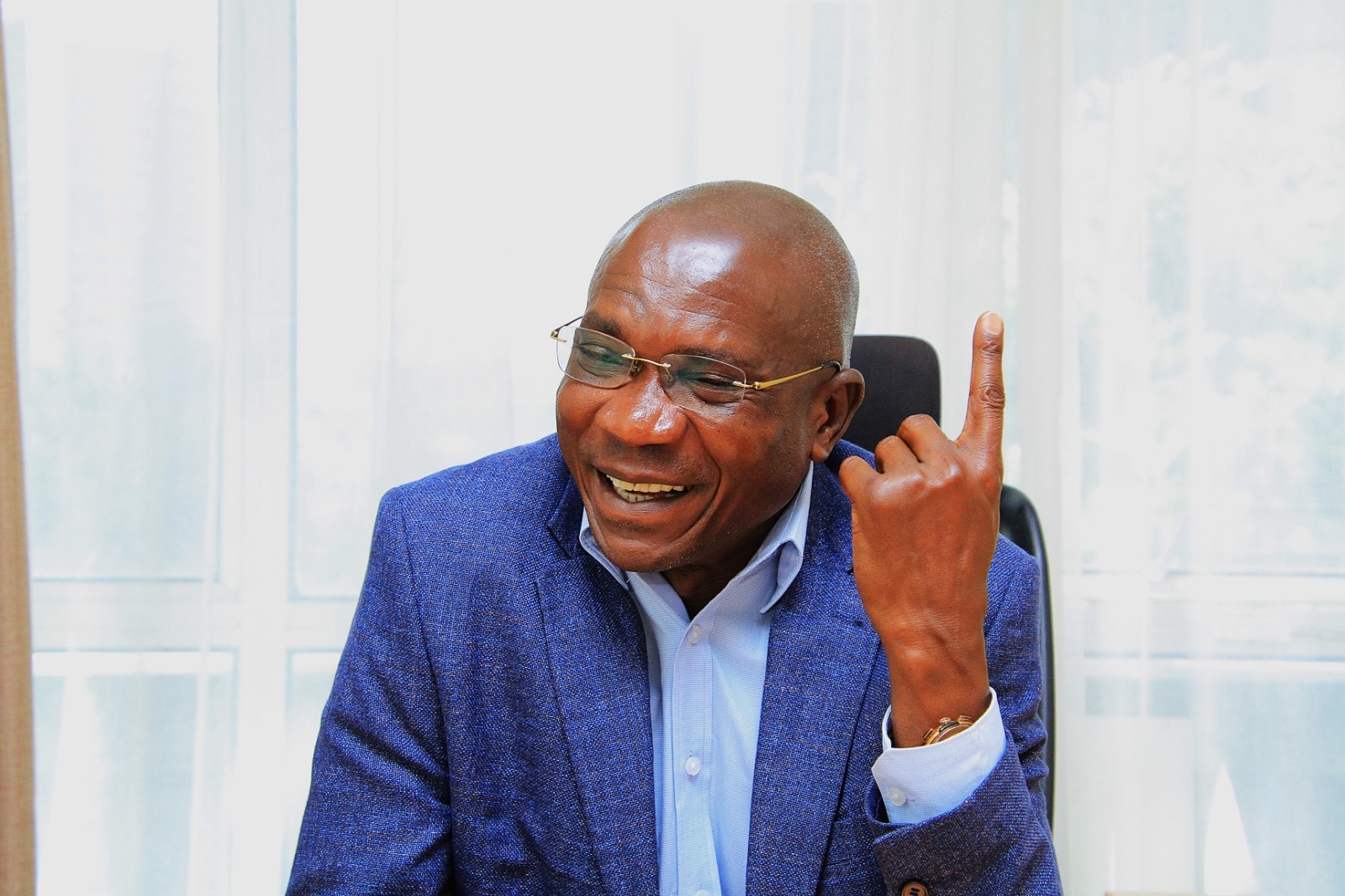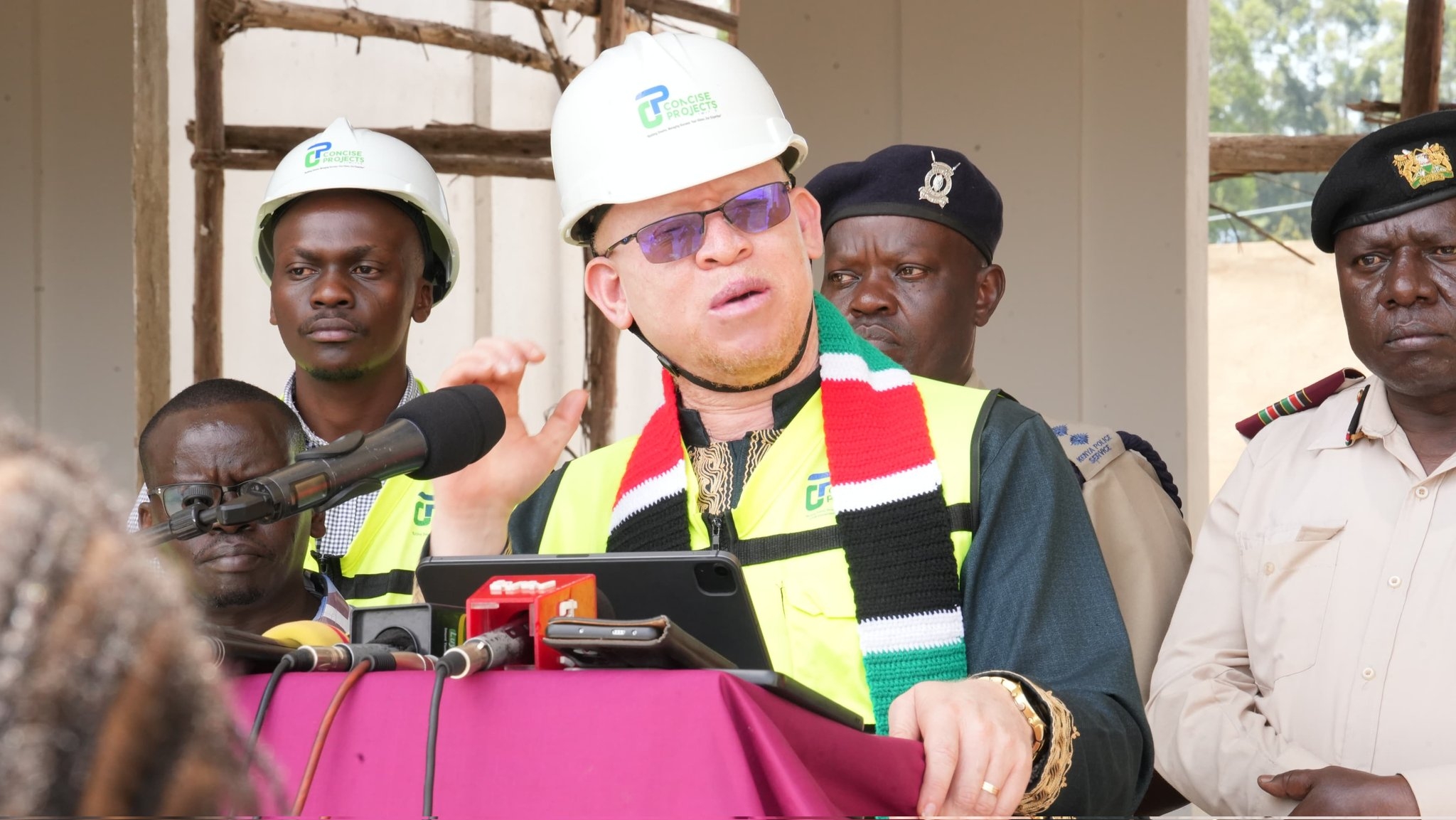There is no dignity in begging for food particularly in Africa, a continent with the best soil, conducive environment and solar all the time, says Haki Nawiri Africa NGO founder Leonida Odongo.
Odongo said quality education can’t be achieved on a rumbling stomach noting that research had shown that schools which have feeding programmes often have more children.
“That’s why we are trying to come up with a sustainable diet where children can trace where food comes from and also take care of the environment as well as take knowledge back to their parents at home,” Odongo said.
Odongo addressed the press at Kavindini primary school in Machakos County on Monday where they introduced an agro-ecology project in a bid to promote food security as well as help contribute to climate change mitigation.
280 pupils including those from Junior Secondary Schools and teachers were trained on how to practice agroecology.
Odongo said other than Machakos, they also had projects in Nairobi and Siaya counties.
Agroecology is sustainable farming that works with nature. Ecology is the study of relationships between plants, animals, people, and their environment - and the balance between these relationships. Agroecology is the application of ecological concepts and principles in farming.
“This is the first step where we are training children. But, we are going to engage parents on the same in the next session of the project,” Odongo said.
Odongo said the NGO is involved in four pillars; food justice, climate justice, gender justice and youth engagement.
She said food injustice that they were engaged in communities across the country including schools involved both technical and political education in the entire food production process; from soil, seed, care for crops, harvest and post-harvest.
On climate justice, Odongo said communities were adversely affected by climate change, yet the situations hadn’t been documented in most cases.
“Recently, we had floods in Kenya. Previously, we had a drought and many times, these stories aren’t communicated particularly from the voice of the community. That’s why we are at Kavindini Primary School now,” Odongo said.
“We are here doing climate resilience in collaboration with Safina Organization and Kariobangi Social Justice Centre. We are bringing to the project various organisations because, with climate change, you can’t fight alone,” Odongo said.
Odongo said they were educating children and teachers of various schools on how to make carbon beds.
He said Machakos was a semi-arid area hence residents faced challenges of water, drought and food.
Odongo’s colleague Brian Ochieng’ said the project was also intended to empower communities to boost food production in the country.
“We are doing agroecology with the intent of sensitising communities to alternative farming. Something that can revert food security in the country,” Ochieng’ said.
Ochieng’ said the project’s main objective was to ensure that the community was food secure and introduce Kenyans to locally available resources for farming.
He said another reason why they were in schools was the fact that every child has a responsibility in the community of food production at the household level.
“So, today we are teaching the pupils and their teachers how to prepare carbon beds in a bid to revert the climate crisis that we have in the country. This is the fourth school we are working with in this region and we have seen fruits in what we are doing especially on fruit forests,” Ochieng’ said.
Ochieng’ said they had so far planted more than 1, 000 fruit trees in General Mulinge and Mumbuni primary schools to ensure that each child adopts a tree and that they engage in afforestation and produce fruits at the same time.
Kariobangi Social Justice Centre’s Habil Omar said the school-based programme was focused on issues of food severity, trying to understand the impact of climate change on livelihoods and education of our children and how they can be able to equip school-going children to be able to play effective roles in terms of being part of change in their various communities and combating effects of climate change.
















